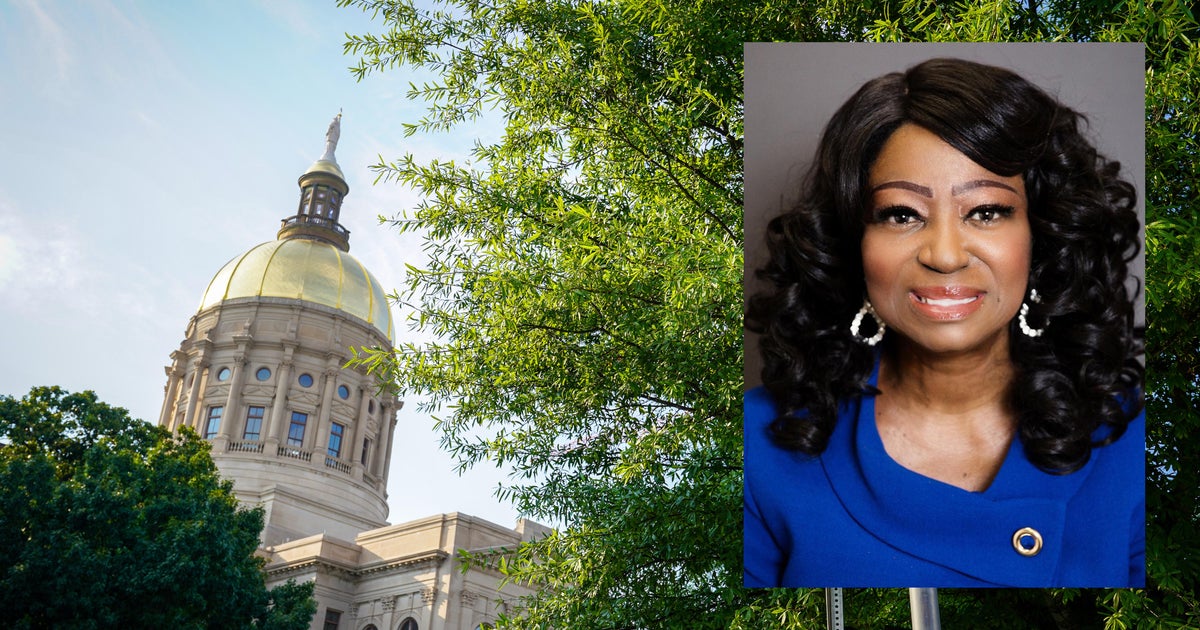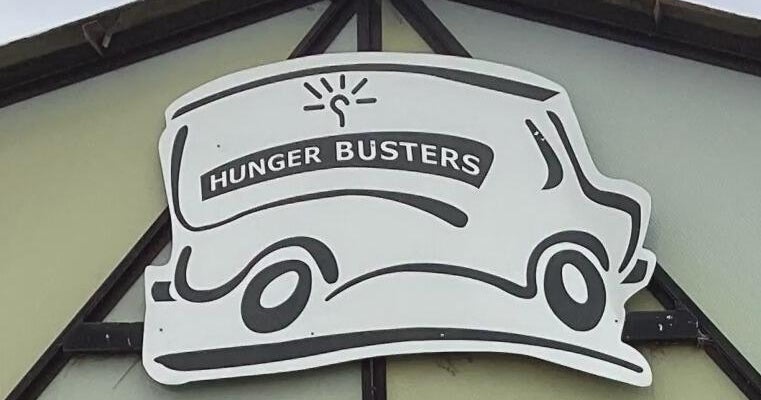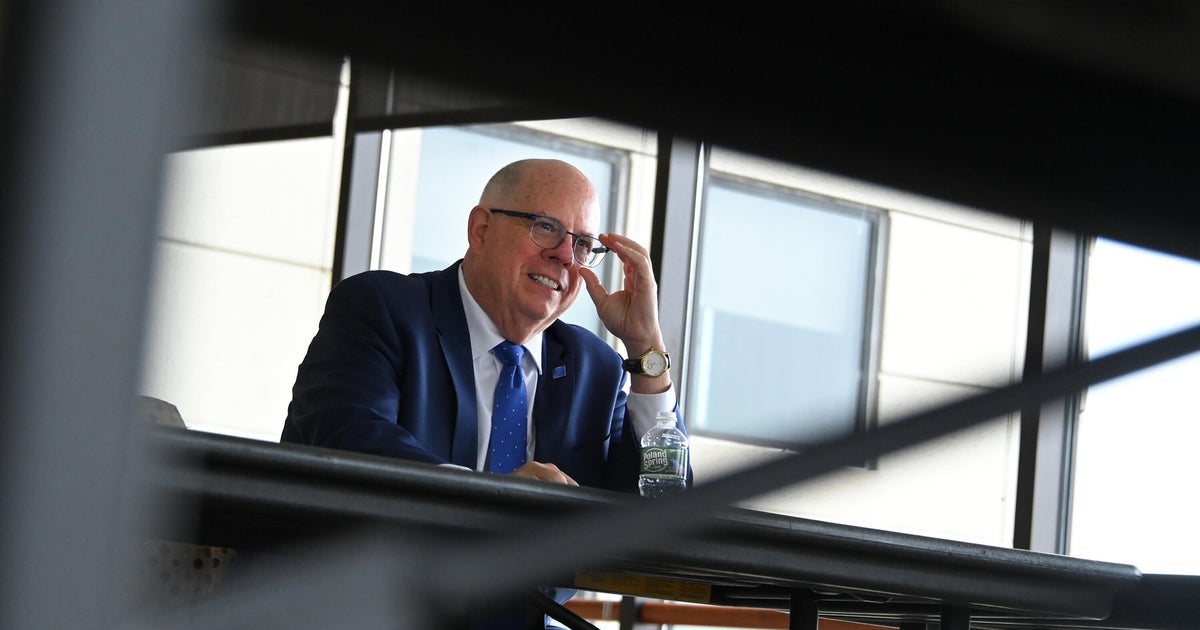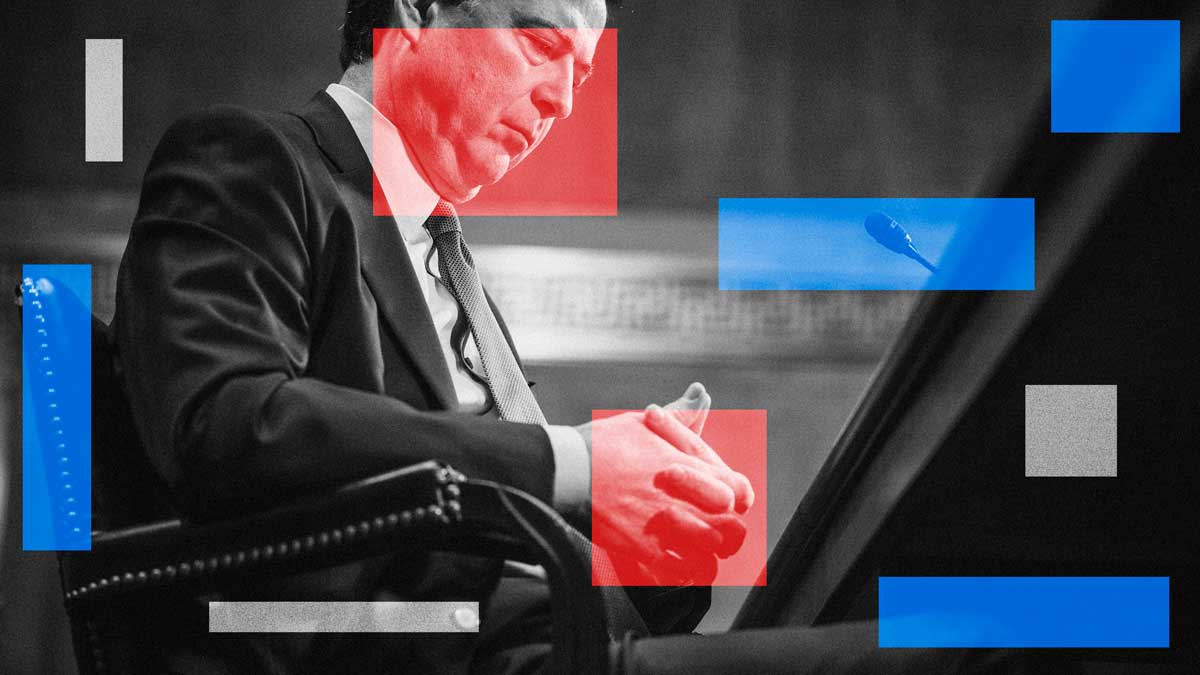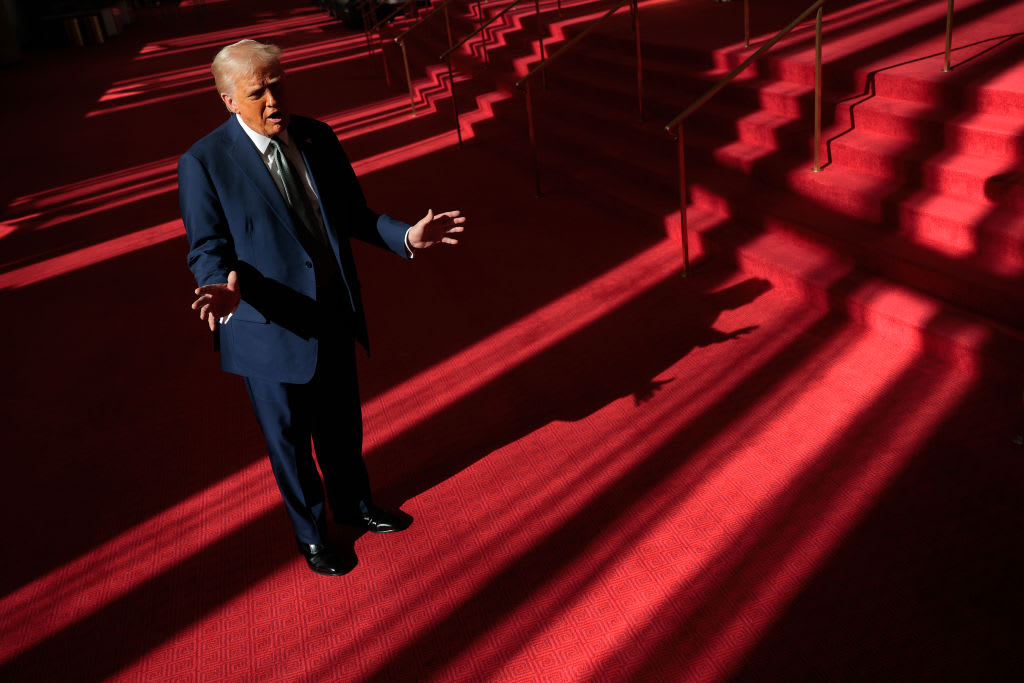ICYMI: Top takeaways from this week's "Face the Nation": RNC goes on with the show amid COVID
This week on "Face the Nation", halfway through this year's unconventional political conventions, the spotlight turns to the Republicans to make their case that President Trump deserves a second term.
Here's the big takeaways from Sunday's episode of "Face the Nation"
1. RNC Chair defends Pompeo's convention appearance
- Republican National Committee chair Ronna McDaniel is a fundraising powerhouse for the GOP, and is about to begin the 4 day long convention to re-nominate Donald Trump. There has been public criticism of the President's decision to use the White House and taxpayer funded federal assets as staging grounds for some of his appearances at the RNC.
- McDaniel insisited that all of the programming and staging will be paid for by the RNC and the campaign. It was not as clear whether the Secretary of State Mike Pompeo would bill taxpayers or the campaign for the costs associated with his address which will be delivered while on an official overseas trip to Israel.
- What McDaniel said: "The programming, the staging, everything that we're doing will be paid for by the Republican National Committee and the campaign," she said, adding the Republicans are "not using taxpayer dollars to pay for our convention."
- On the issue of voting in 2020, the RNC chair echoed President Trump's concerns regarding mail in voting related fraud. I asked her why do republican parties in a number of states – including Ohio and Pennslyvania – promote mail in ballots if the President himself believes that it is rife with fraud?
- "I'm so glad you asked me this question, because there is a very real difference between states that have tried and true absentee processes that have been in place and have been tested and work versus states like Nevada that 90 days out from an election have completely upended their entire election protocol and put chaos into their process because they haven't tested it and it isn't certain….. And we are suing states that are trying to change their process 90 days out from an election, which is adding chaos to an election where we should have certainty"
- Why it matters: Pompeo's speech before the RNC marks a rare political forum for a top diplomat like himself. Typically, diplomats of Pomepo's stature are advised against getting involved in domestic politics -- certainly not ones on such a national scale.
- Mr. Trump himself raised eyebrows amongst Democrats and some Republicans after announcing he would be accepting his party's nomination for re-election from the White House South Lawn. The Office of Special Counsel confirmed federal law does not preclude the president from delivering his remarks from the White House.
- McDaniel meanwhile argues that it's "appropriate" for Pompeo to discuss the Trump administration and highlight policies "that have made the lives better of the American people."
2. LA's Garcetti claims Trump is "killing Americans" and the economy
- Mayor Eric Garcetti of Los Angeles, also serves as a co-chair of the Biden campaign. While the former VP discussed a number of topics during his address on Thursday, he provided no detail on his own economic plan and no criticism of the Trump economic plan either. We asked Garcetti if that was a missed opportunity given that Trump still leads in polls when likely voters are asked which of the two canddiates would be best for the economy. Garcetti deflected.
- What Grarcetti said: "[President Trump] has no plan. And he's killing Americans right now and killing our economy. I think it's such a contrast between two people who have a heart and experience what this country needs, and a man who has neither.
- We also pressed him on the spread of COVID19 in his own city, and his decision to take some unusual measures. Why did the LA Mayor turn off the power at a celebrity's home?
- What Garcetti said: "People are listening, they're far and few between our numbers are coming down, but where people don't listen, we're going to shut them down. That's critically important. This is not a time to be spreading this disease, especially younger people. And by the way, I want to thank all the young people who said shut it down because they saw their peers acting irresponsibly. At super spreader events 10 percent of people, MARGARET, usually are responsible for about 80 percent of the cases. And we're just not playing here. We are not going to let people take our lives into their hands so they're shut down.
- Why it Matters: While the Biden campaign claims to want to "Build Back Better" it's still unclear how they would manage to do that.
3. Comey admits "miss" and "mistakes" in FBI's handling of Russia DNC hack in 2016
- In an rare bipartisan report, the Sente Intelligence Committee released the conclusions of its 3 year long investigation into the 2016 election interference. It went further than the investigation led by Robert Mueller, and publicly named Trump Campaign Chair Paul Manafort as a "grave counterintelligence threat" due to his close worth with a Russian intelligencer officer.
- We asked Former FBI Director Jim Comey for his reaction to the report which also criticized the FBI for its failed process in informing the DNC that its servers had been hacked by Russian intelligence. We asked him how the FBI could have missed the fact that a Russian active measures campaign was happening under his nose?
- What Comey said: "That's a great question. I think the simple answer is because it had never happened before, but if I were still director of the FBI, that wouldn't be a good enough answer. I hope they're taking a look back across the intelligence community and asking, so why didn't we imagine that the Russians might do this? But the truth is that we didn't. Nobody in the intelligence community did.
- So was it a mistake? "I sure think it was a miss- a mistake, I'm not going to quibble on words. Yeah, it was a miss. I don't know why it didn't occur to us that the Russians were doing something that they had never done before, which is to weaponize and actually fire stolen material at our democratic process. And, look, looking back in hindsight, it seems obvious. I don't know the answer as to why nobody in the intelligence community, none of the analysts, saw this coming. And it ought to be something that we're asking ourselves," Comey said.
- Perhaps most ominously, Comey said that the U.S. remains vulnerable: "Yes, in a different way. I'm sure the Russians will use different tactics because we've figured out what they were last time. They achieved their objectives in the last election. They've done incredibly well under President Trump. They want him to stay in office. They'll be coming again. And the problem for us as Americans is you can't effectively stop a threat that the president won't even acknowledge exists. And so, sure, they're going to be in our house again, messing with us. The only way we're going to kick Putin out of our elections is to elect Joe Biden president so someone finally puts real pain on the Russians"
- Why it matters: While nearly four years after the fact, Comey's mea-culpa on behalf of the FBI comes at a point in which the country faces equally damaging impacts on its democratic process heading into the 2020 election. Much like in 2016, Russia, as Comey noted, still poses an extreme threat on U.S. election systems.
4. Gottlieb defends FDA from Trump allegations of political influence
- This week the CDC warned that "Middle America" is getting stuck with the virus still spreading in certain states. Meanwhile, the U.S. passed its 8th straight day of the infection rate coming in at below 50,000. Dr. Scott Gottlieb, the former FDA commissioner, told us that is a good sign.
- What Gottlieb said: Well we're seeing some signs of good news here. We're seeing cases fall across the country, across the Sunbelt, where the epidemic was. We're seeing deaths start to fall, and I think we're going to see deaths fall below a thousand a day. They've been persistently at above a thousand a day now for almost four weeks. And we're seeing hospitalizations fall, which is probably the most important indicator to watch. They fell below 40,000 for the first time in a very long time. And this is being driven by declines in the Sunbelt where the coronavirus really was epidemic, the sort of second wave, if you will, of the epidemic, the first being located in the New York tri-state region. But we're seeing more cases build in the Midwest and the West. And the concern is that if there is sort of a third wave, a third iteration of the national epidemic, it could be more diffuse spread across a broader section of the Midwest and the West, because cases are building in those parts of the country. And that's what's concerning people right now.
- With schools and childcare centers reopening, we asked Gottlieb his take on the Journal of Pediatrics reporting this week that children have a more significant role in community spread of COVID-19 than initially believed. We asked Gottlieb if that means kids are more contagious than we thought?
- What Gottlieb said: "I think this study was consistent with other studies. What it showed- it was nasopharyngeal swabs, so it was swabs from children comparing them to swabs from adults. There was some problems with this study in that they were swabbing the kids early in the course of the disease, comparing them to adults who were swabbed late in the course of the disease, albeit adults who are very sick, who were hospitalized. And they found that the kids had very high viral levels, in many cases higher than the adults. I think it confirms what other- other studies have shown, which is that children do shed virus and they can transmit the virus. If they can't transmit the virus, we wouldn't be seeing these outbreaks in day camps in Missouri and Georgia. We saw the situation in Ohio where there was an outbreak in a church service and children were in the chain of transmission. So children can transmit the virus. The presumption is that when they're asymptomatic, they're less likely to transmit it. And that's true of adults too. The CDC says that when adults are asymptomatic, they're also less likely to transmit the infection."
- Gottlieb also defended the agency after the president suggested it was part of a scheme orchestrated by the so-called "deep state" to delay trials for a coronavirus vaccine and therapeutics, with the goal of hurting his reelection prospects.
- "I firmly reject the idea that they would slow-walk anything or accelerate anything for that matter, based on any kind of political consideration and any consideration other than what's best for the public health and a real sense of mission to patients..."when it comes to regulatory decision-making in that agency, it's a foundational truth that will guide that agency as science and a deeply seated sense of public health mission that permeates that agency. It's a part of the esprit de corps of the staff of that agency."
- Why it matters: The administration's attacks on the FDA are just the latest in a series of affronts on critical government agencies working to combat and mitigate a devastating public health crisis.
5. University of Arizona president says "off-campus activity" key to controlling virus at schools
- University of Arizona begins classes on Monday, and their President Dr. Robert Robbins has authorized some in person classes. Robbins is a former cardiac surgeon. We asked him at what point would the university make the decision to shut them done. He seemed to say it was not a matter of if but when there is an outbreak, and they will wait to see just how bad it gets before shutting down.
- What Robbins said: "When we can't mitigate and handle, if we get overwhelmed with cases where we can't- don't have enough room for isolation, our hospitals are starting to get capacity- overcapacity where we can't surge into ICUs, and if someone were to get really sick. So we're going to be watching the numbers every day. And if we run out of isolation beds and we can't handle it and people are getting really ill, then- then we'll pull the plug....I think we're going to continue that preventative therapy and education. But we've got to switch quickly into the treatment mode. We know they're going to be spikes in cases, so we've got to be able to handle them."
- What it matters: Public health experts continue to urge individual responsibility as a key factor to keeping COVID-19 cases down – that means stringent social distancing, mask-wearing and hand-washing. But, when it comes to 19 and 20-year olds leaving home for the first time, that might be easier said than done.
Programming note: Catch us on the road, at home, for the Texas Tribune Festival
Where else could you watch interviews from Hillary Clinton, Dr. Anthony Fauci, Ted Cruz and Willie Nelson at one event? This year, Face the Nation moderator Margaret Brennan has been added to the lineup as a newsmaker interviewer. Check out more details below to be among the first to know when her session is announced.
The Texas Tribune Festival is one of the nation's largest and buzziest annual gatherings that brings together politicians, activists, advocates, lawmakers, and media icons for days of discussions on politics, policy and current events.
This year, the 10th annual festival has been reimagined as a virtual experience with 30 days of programs, inviting attendees to participate in the day's biggest conversations from wherever they are.
Learn more and buy tickets today at festival.texastribune.org.
Missed Sunday's episode? Click here to watch the show. "Face the Nation" airs Sunday mornings on CBS. Click here for local listings.

